Last week, the BBC's media editor and critic Amol Rajan delivered a major lecture at the University of Kent, focusing on challenges in modern journalism, including (of course) fake news.
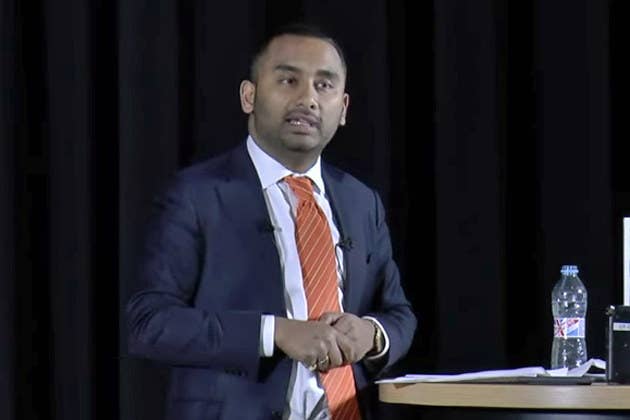
Rajan said journalists needed to "take a look in the mirror" after missing big stories, while also suggesting "journalists have a tendency to blame everyone but themselves".
Over the weekend, Rajan's lecture was posted on the BBC News website and on YouTube. He went on to retweet a lot of the praise it was getting from British media industry leaders.

One broadcaster even suggested Rajan "might just become the next head of BBC News."
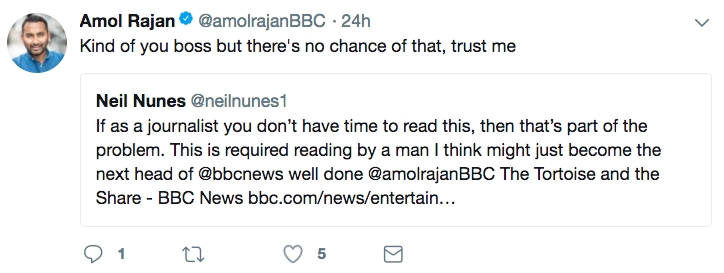
But one anecdote from the nearly 9,000-word speech jumped out. It involved the Independent's founding editor, search engine optimisation and boy band One Direction.
Rajan claimed that during his tenure as an editor on the Independent website, in a desire to hit traffic targets, he cleverly – and cynically – slipped One Direction into the headline of a column by one of the newspaper's founding editors Andreas Whittam Smith to ensure that it ranked highly on Google search and attracted more traffic.
Apparently, the trick had the effect of making Whittam Smith's column about transparency and the House of Lords the "most read piece on independent.co.uk that month".
Here's the full anecdote:
I know too well how chasing clicks, not least through tweaking SEO, distorts editorial priorities. At the end of my first week on The Independent website, I once had just one article left to publish. I was desperately short of numbers on the traffic front, and it would have spoilt my weekend if I didn't hit my target. Alas the only piece I had left to publish was by Andreas Whittam Smith, the founding Editor of the paper. He was a great journalist but not a big mover of traffic, and this piece was about the need for greater transparency in the House of Lords and civil service - not the sort of salacious, traffic-generating subject you'd see in the Mail's Sidebar of Shame. Desperate for traffic, I looked at what was at the top of Google News. I saw that One Direction had just released an album in Canada. So I put a headline on Andreas's piece that said: 'All the evidence points in one direction: we need reform of our institutions now'.
It was the most read piece on independent.co.uk that month. I love the idea of all these teenage girls in Canada looking up the latest song by Harry Styles and Zayn Malik, and instead coming across an essay by the founder of The Independent on restructuring the Treasury...
Suffice to say, tweaking headlines in this fashion ain't what I went into journalism to do.
So BuzzFeed News went looking for the column with the mega viral headline. Searches on Google only brought up results from Rajan's own lecture.
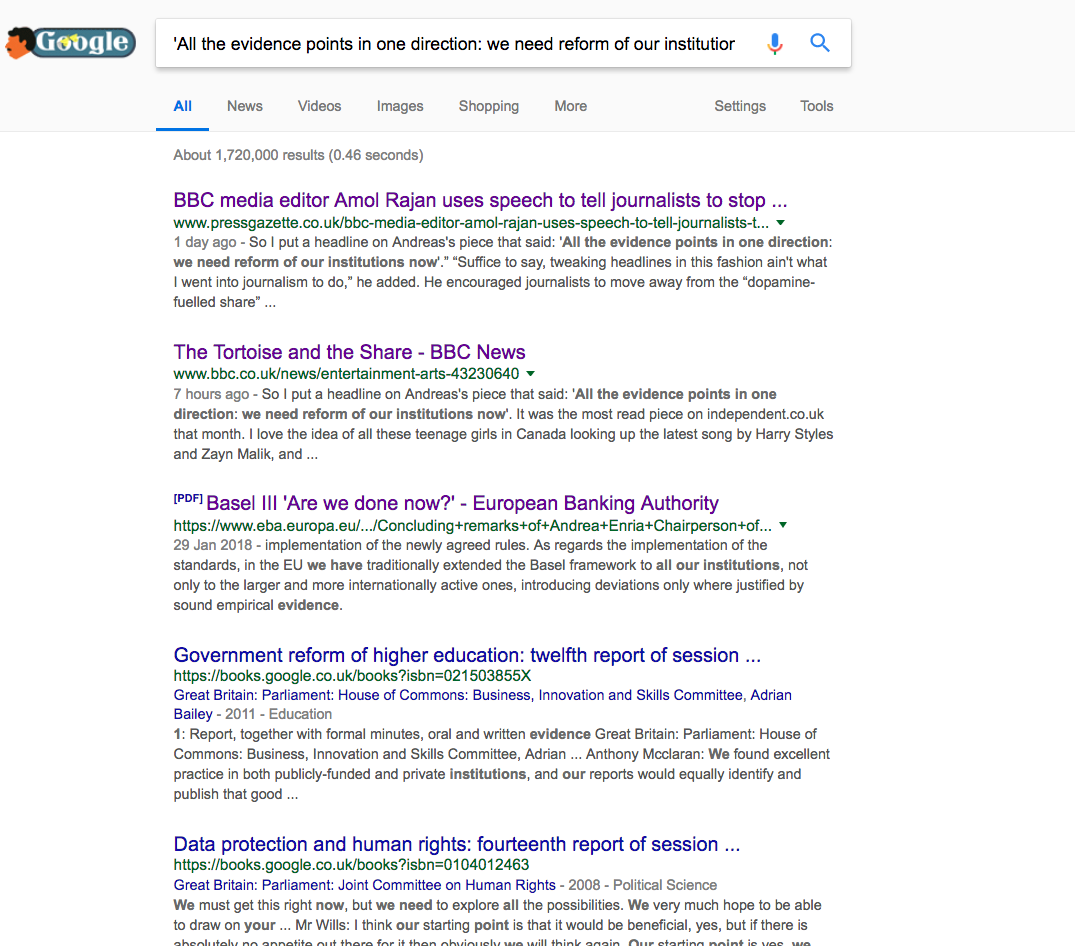
BuzzFeed News then asked Amol Rajan himself about the headline and column from the anecdote. Over text message, Rajan said he hadn't checked "for yonks" and besides "its headline may have changed".
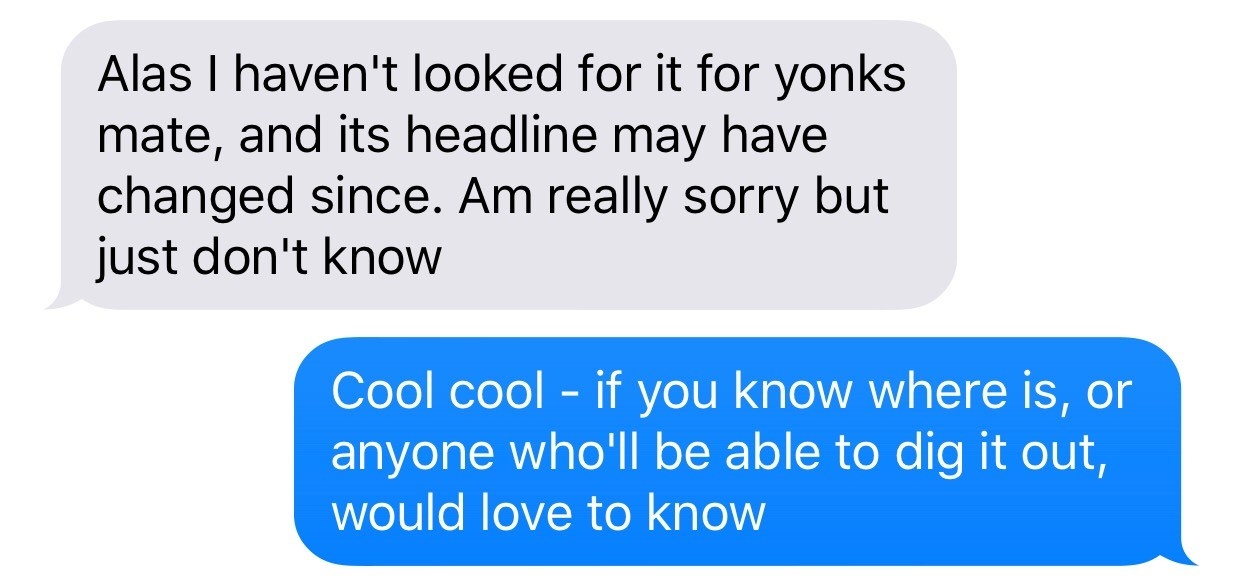
After going through all of Andreas Whittam Smith's columns dating back to 2010, BuzzFeed News decided to go straight to the writer himself.
Unfortunately, even Whittam Smith couldn't find it.
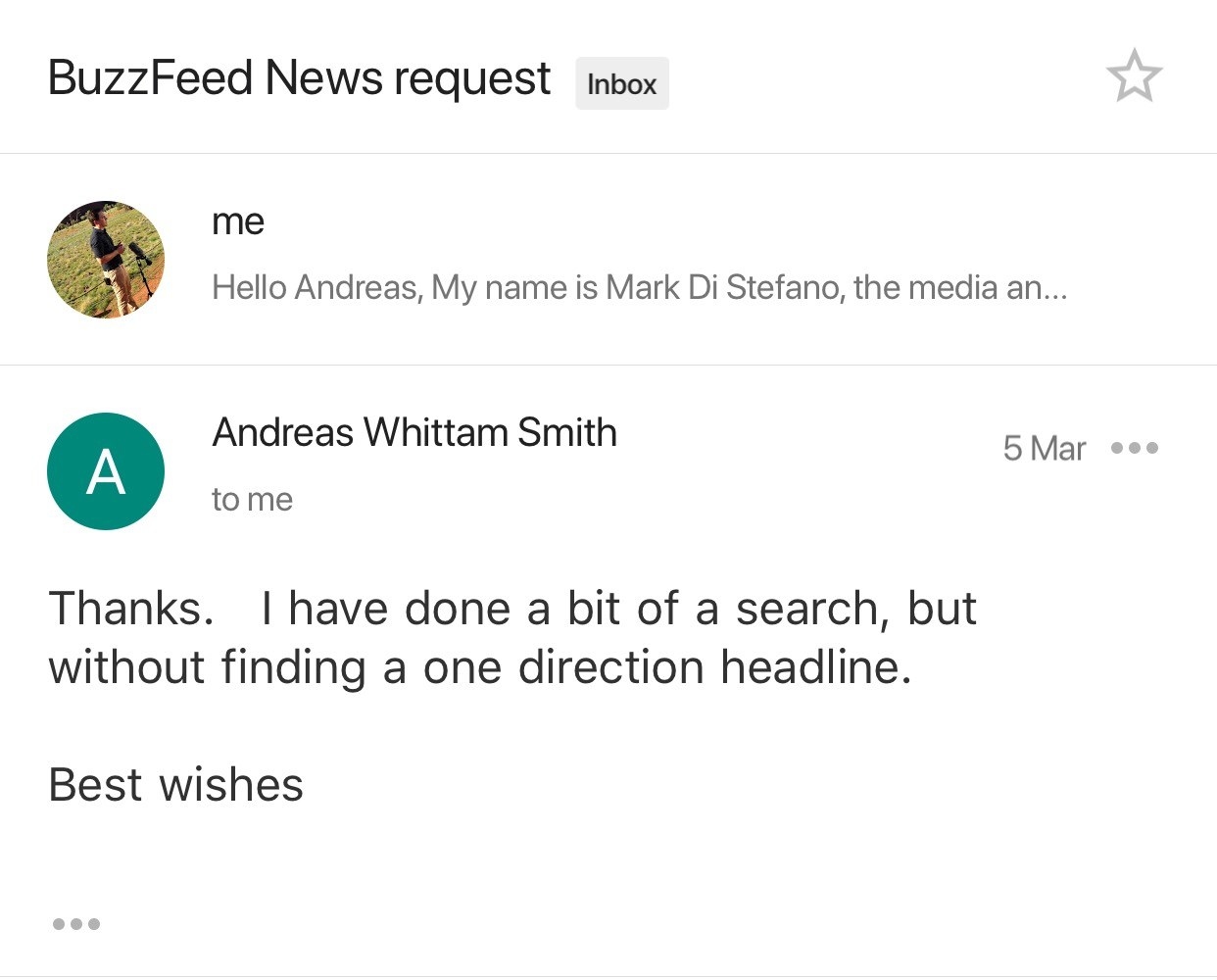
Two SEO experts also disputed Rajan's Whittam Smith-One Direction tale on the grounds that his method — putting One Direction in the middle of a headline — probably wouldn't have worked anyway. It would not have been enough to fool Google into ranking it highly, and even if it had, users searching for the boy band would have been seriously unlikely to click on it.
BuzzFeed News now understands the Independent has only once published a Whittam Smith column with One Direction in the headline.
That happened in October 2012, and the column was about the BBC and Jimmy Savile. It's understood the headline was quickly changed and didn't even make it into that month's top 1,000 stories for traffic.
BuzzFeed News went back to Rajan on Tuesday morning with a series of questions, including whether he stood by the anecdote. Rajan responding with a statement, which he also also immediately published on Twitter.
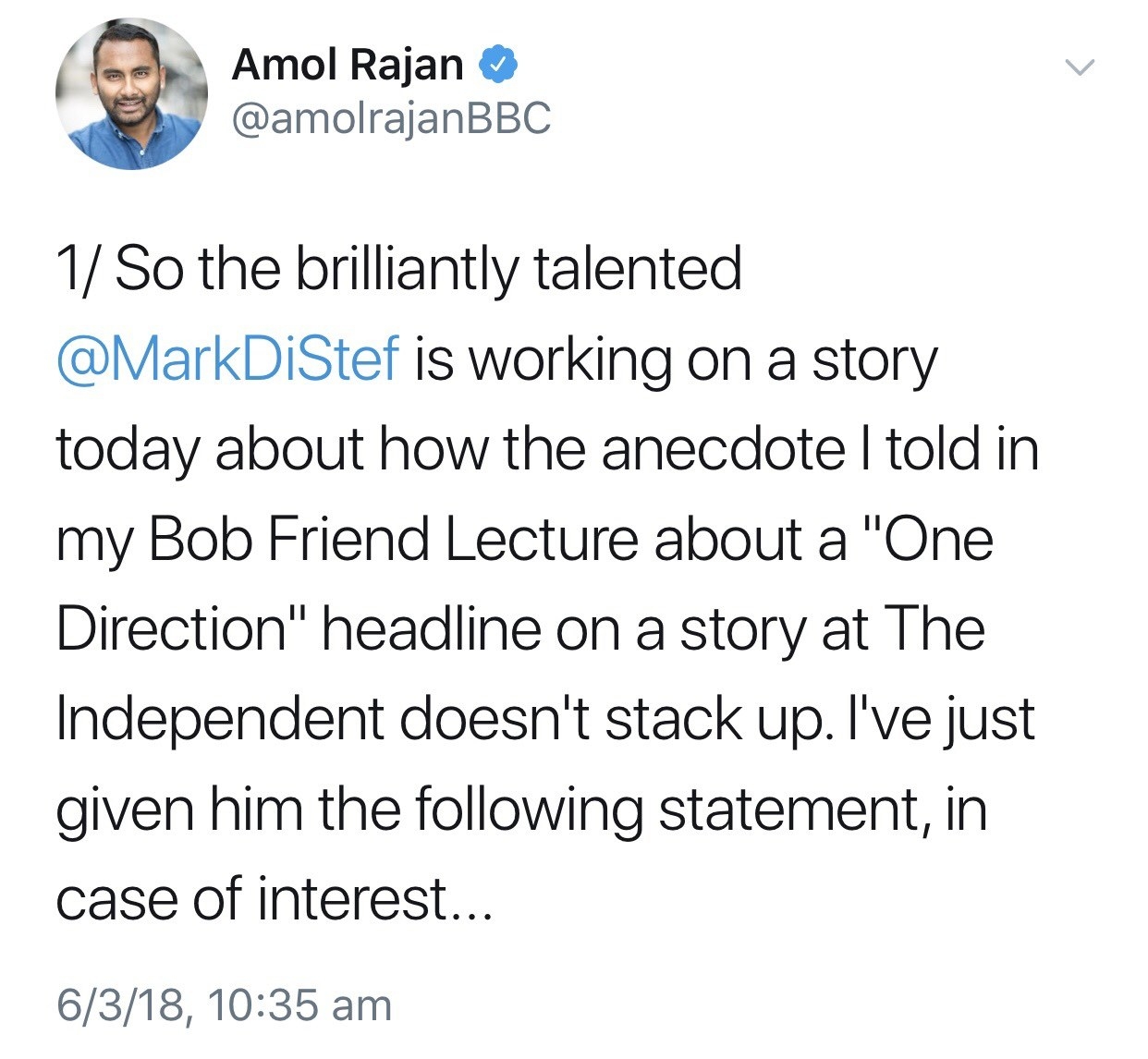
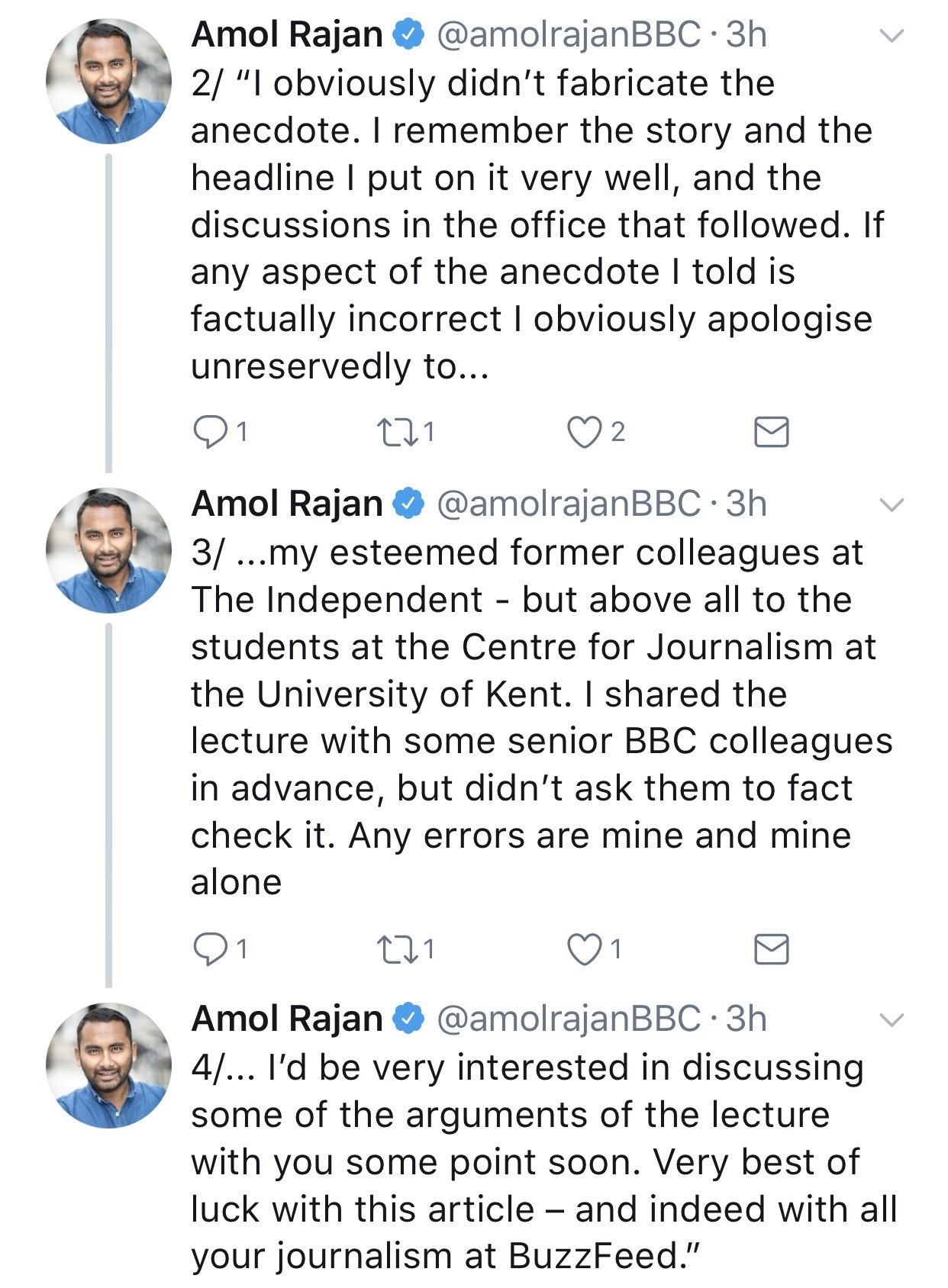
"I obviously didn't fabricate the anecdote," Rajan's statement read. "I remember the story and the headline I put on it very well, and the discussions in the office that followed."
"If any aspect of the anecdote I told is factually incorrect I obviously apologise unreservedly to my esteemed former colleagues at The Independent - but above all to the students at the Centre for Journalism at the University of Kent."
The issue will be embarrassing to the BBC's media editor. On Wednesday, BBC director general Tony Hall will use a major speech to declare that "nobody is fighting harder for Britain" than the BBC on issues including "fake news".
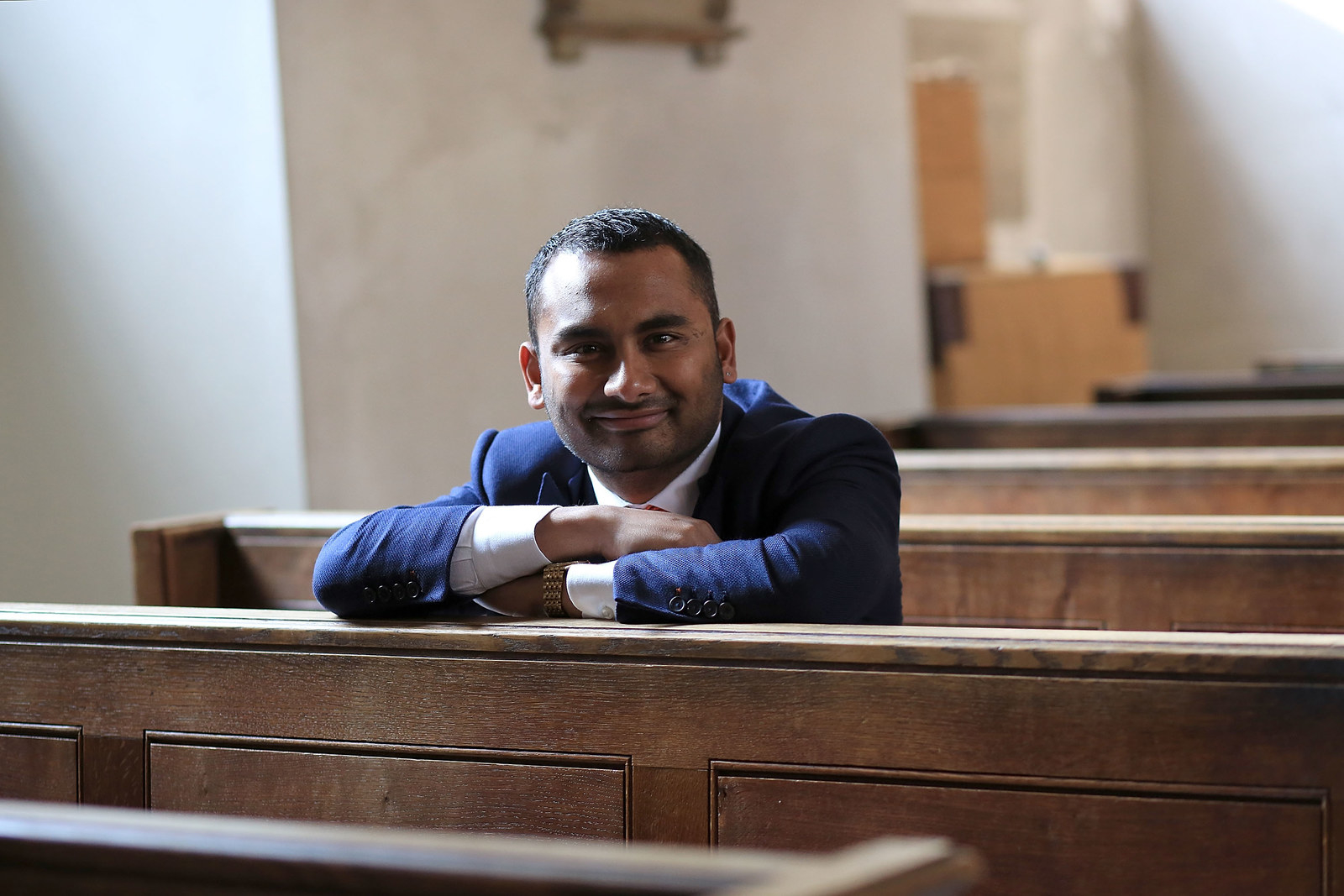
The BBC has been contacted for comment.
